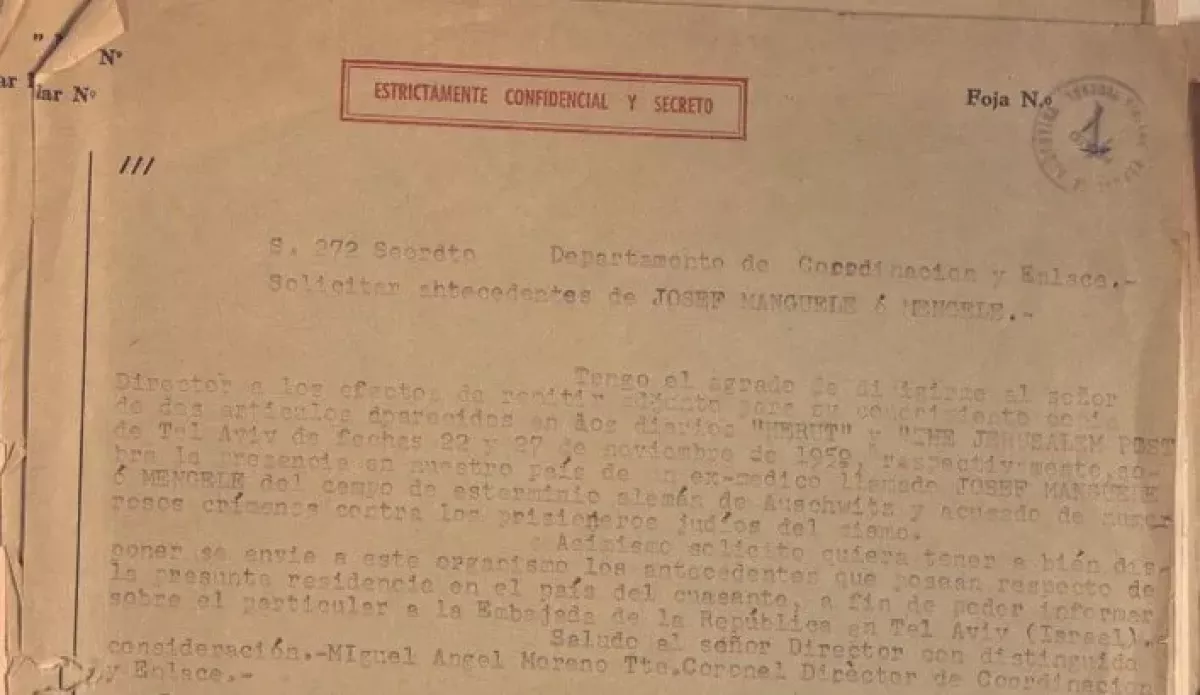Argentina declassifies archives on Nazi war criminals who fled after World War II
The Argentine government has published a newly digitized trove of declassified documents detailing the presence and movements of Nazi war criminals who fled to South America after World War II.
The release includes more than 1,850 documents organised into seven dossiers, now available for public access on the government’s archival website, per Caliber.Az.
Among the documents is an intelligence file on Josef Mengele, the infamous Nazi physician who conducted horrific medical experiments on prisoners at Auschwitz concentration camp. Other files in the release include dossiers on Adolf Eichmann — the key architect of the Holocaust, who was abducted from Argentina in 1960 by Israeli Mossad agents — as well as concentration camp commandant Edward Roschmann and Gestapo officer Walter Kuchmann.
The decision to declassify and publish the materials follows an initiative ordered by President Javier Milei earlier this year. In March, Presidential Spokesman Guillermo Francos confirmed that Milei had instructed the release in response to a request from a US senator.

The records had been held in Argentina’s General Archives since 1992, when they were transferred there under a presidential decree by then-President Carlos Menem. They are the result of decades-long investigations carried out between 1950 and 1980 by Argentine federal agencies, including the Federal Police’s Foreign Affairs Directorate, the State Intelligence Secretariat, and the National Gendarmerie.
The recent push to make the records publicly accessible online was prompted by a meeting in February between President Milei and representatives of the Simon Wiesenthal Center — a Jewish human rights organization dedicated to tracking Nazi fugitives and preserving Holocaust memory. Until now, these documents were only viewable in person at a designated room within the Argentine General Archives (AGN).
A significant number of Nazi officials and collaborators sought refuge in South America after World War II, with Argentina becoming one of the most prominent destinations due to its postwar policies and networks that facilitated entry and concealment.
In addition to the Nazi-related files, the AGN has also published nearly 1,300 formerly secret and confidential presidential decrees issued between 1957 and 2005. These documents, now accessible online for the first time, cover a broad array of sensitive topics — including the purchase and sale of weapons, changes to national budgets, and the internal structuring of Argentina’s intelligence services.
The AGN is administered by the Secretariat of the Interior, which operates under the oversight of the Argentine federal government. By making the archive fully available online, officials say they aim to promote transparency, historical research, and global access to critical records of the 20th century.
By Tamilla Hasanova








